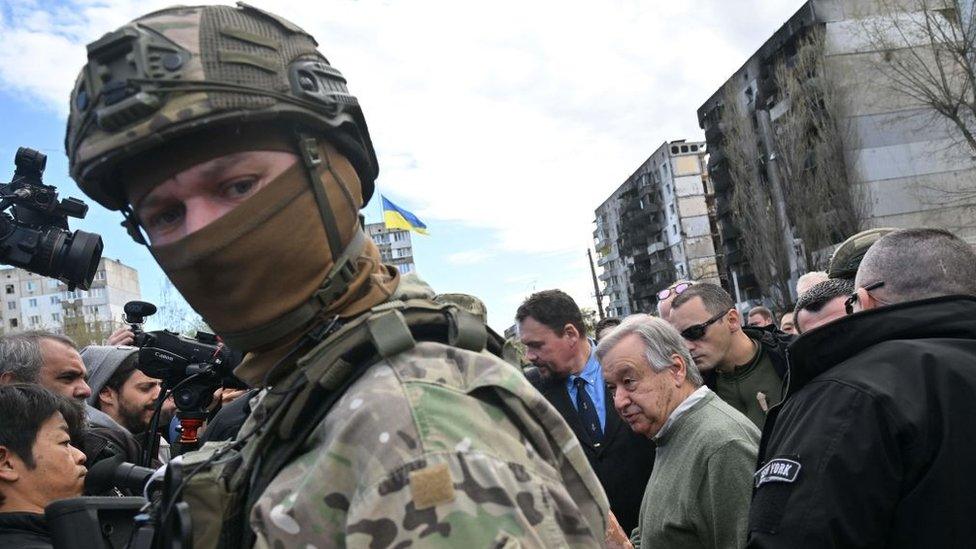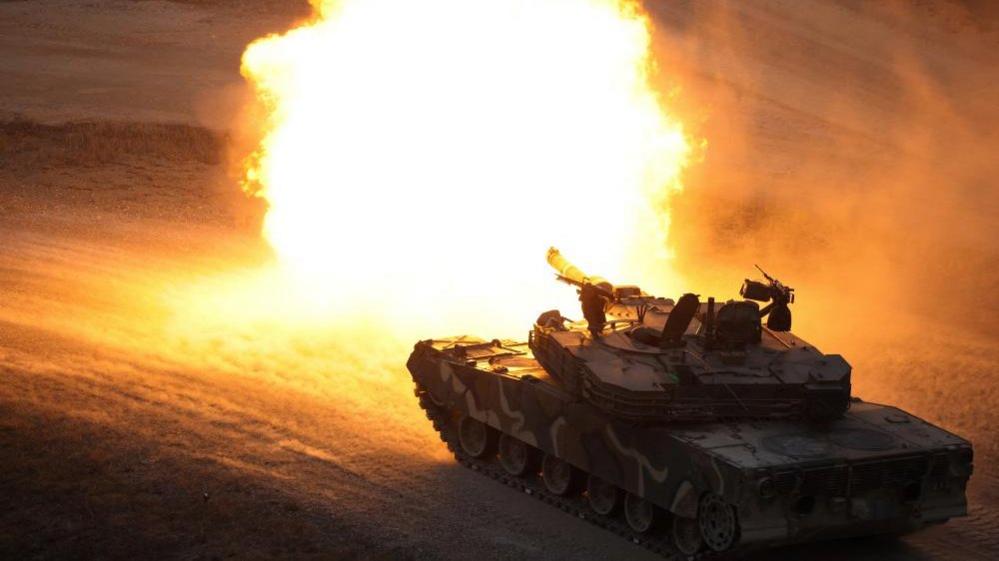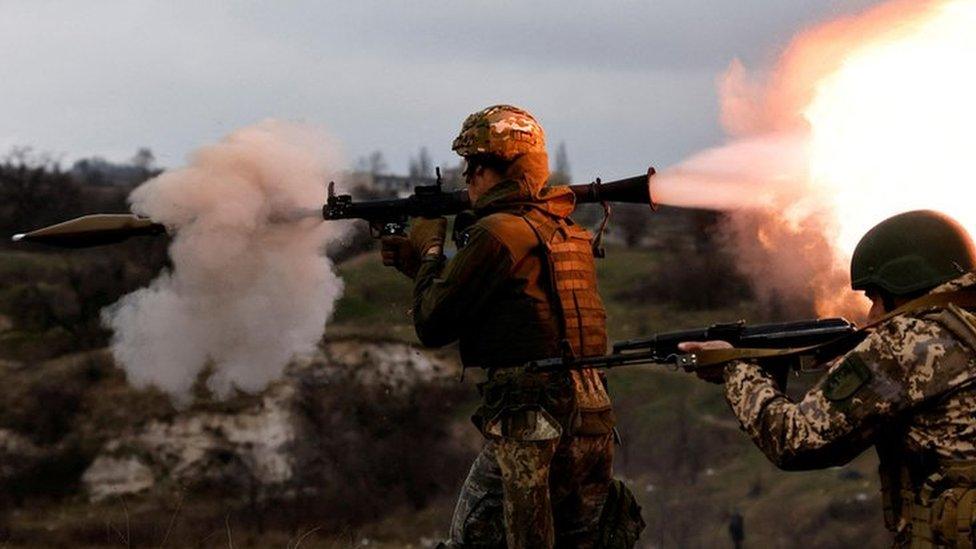US thinks UN chief too accommodating to Moscow, leaked files suggest
- Published

Antonio Guterres (C) visited war-ravaged Ukraine in April of last year
The US believes the UN secretary general is too willing to accommodate Russian interests, according to fresh revelations in classified documents leaked online.
The files suggest Washington has been closely monitoring Antonio Guterres.
Several documents describe private communications involving Mr Guterres and his deputy.
It is the latest from a leak of secret documents, which US officials are scrambling to get to the bottom of.
The documents contain candid observations from Mr Guterres about the war in Ukraine and a number of African leaders.
Watch: The Pentagon leaks explained in under 60 seconds.
One leaked document focuses on the Black Sea grain deal, brokered by the UN and Turkey in July, following fears of a global food crisis.
It suggests that Mr Guterres was so keen to preserve the deal he was willing to accommodate Russia's interests.
"Guterres emphasised his efforts to improve Russia's ability to export," the document says, "even if that involves sanctioned Russian entities or individuals".
His actions in February, according to the assessment, were "undermining broader efforts to hold Moscow accountable for its actions in Ukraine".
UN officials bristled at the suggestion that the world's leading diplomat was being soft on Moscow.
"The Secretary-General has been at this job, and in the public eye, for a long time," Mr Guterres' spokesman, Stephane Dujarric, has said.
"He's not surprised by the fact that people are spying on him and listening in on his private conversations. What is surprising is the malfeasance or incompetence that allows for such private conversations to be distorted and become public."
Refusing to comment on leaked documents, one senior official said the UN was "driven by the need to mitigate the impact of the war on the world's poorest".
"That means doing what we can to drive down the price of food...and to ensure that fertiliser is accessible to those countries that need it the most."
Russia has frequently complained that its own exports of grain and fertiliser are being adversely affected by international sanctions, and has threatened at least twice to suspend co-operation with the grain deal unless its concerns are addressed.
Russian grain and fertiliser are not subject to international sanctions, but Russia says it has experienced difficulties with securing shipping and insurance.
UN officials are clearly unhappy with America's interpretation of Mr Guterres' efforts. They say that Mr Guterres has made his opposition to Russia's war very clear.

More Pentagon leaks coverage:

Another document, from mid-February, describes a frank conversation between Mr Guterres and his deputy, Amina Mohammed.
In it, Mr Guterres expresses "dismay" at a call from the European Commission President Ursula von der Leyen for Europe to produce more weapons and ammunition as a result of the war in Ukraine.
The two also talk about a recent summit of African leaders. Amina Mohammed says that Kenya's president, William Ruto, is "ruthless" and that she "doesn't trust him."
It is well known that America is among a number of nations which routinely spy on the UN - but when the fruits of that espionage come to light, it is highly embarrassing and, in this case, potentially damaging to Mr Guterres.
There were few clues as to who leaked the files until Wednesday, when the Washington Post reported it was a gun enthusiast in his 20s, external who worked on a military base.
It said he shared the classified information to a small group of men and boys who share a "love of guns, military gear and God" on Discord - a social media platform popular with gamers.
The BBC has been unable to verify the report, which was based on interviews with two members of the chat group.
The screenshots of the documents themselves, which have since been shared on several Discord discussion channels, have been verified by the BBC.
Discord said on Wednesday that it was co-operating with law enforcement in its investigation into the leak.
"This was a series of dangerous leaks," US national security spokesperson John Kirby told the BBC.
"We don't know who's responsible, we don't know why. We are assessing the national security implications, and right now there is also a criminal investigation," he said, on Wednesday.
"We want to get to the bottom of this; we want to find out who did this and why."
Washington was "reaching out actively" to allies to answer questions they have about the leaks, so they know "how seriously we are taking this", he added.
Mr Kirby said that while the authenticity of some of the documents had yet to be established, they "certainly appear to have come from various source of intelligence across the government".
- Published11 April 2023

- Published10 April 2023
